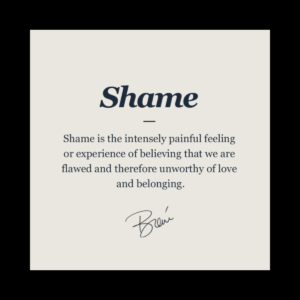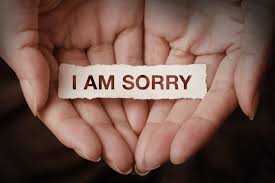 As Brené Brown says, shame is a negative experience for people yet it is an inevitable and necessary part of life. In fact, if handled healthily, shame can lead to personal growth and positive change as well as modesty, humility, and gratitude. Keep reading to learn more about this complicated and taboo feeling and how it impacts all of us.
As Brené Brown says, shame is a negative experience for people yet it is an inevitable and necessary part of life. In fact, if handled healthily, shame can lead to personal growth and positive change as well as modesty, humility, and gratitude. Keep reading to learn more about this complicated and taboo feeling and how it impacts all of us.
Defining Shame
Shame is a feeling of embarrassment or humiliation that arises from the perception of having done something dishonorable, immoral, or improper. People who experience shame usually try to hide the thing they feel ashamed of. When shame is chronic, it can involve the feeling that you are fundamentally flawed. Shame can often be hard to identify in oneself. While shame is a negative emotion, its origins play a part in our survival as a species. Without shame, we might not feel the need to adhere to cultural norms, follow laws, or behave in a way that allows us to exist as social beings.1
Shame is a tricky concept. Shame focuses on the self. Whereas, guilt focuses on the behavior. It is the difference between someone thinking: “I made a a mistake” (guilt) vs. “I am the mistake.” (shame) The research tell us that shame is a necessary part of being human and is not always detrimental. The research also tell us that chronic shame is correlated with depression, anxiety, low self esteem, and other negative health outcomes.
Ordinary Shame
Let’s dig in a bit deeper to examine how ordinary shame looks. Say you hurt your friend’s feelings as you were overwhelmed with work and also hungry and blurted out ” you are so needy,” after she asked you for help. Later, after you got some work accomplished and ate lunch, shame swept over your body, you felt terrible that you had said that. You adore your friend and did not mean those words. So you call your friend on the phone and say: “I am sorry I said those unkind things. I didn’t mean them. I was hungry and irritable. Please continue turning to me for help.” This experience, although painful for you and your friend, teaches you to refrain from saying these comments to your loved ones in the future. Moreover, because you apologized, you repaired the shame and the bond between you and your friend. Thus we call this ordinary, or even healthy, shame as it ensures self-correction and personal growth.
Toxic Shame
Toxic shame infiltrates your entire being. It lasts and lasts. It usually is connected to a traumatic event/s. And it plays itself out persistently through unhealthy behaviors. Toxic shame can be linked to many mental health issues. At the end of the day, toxic shame can end up defining us. We see ourselves as unworthy, not good enough, essentially bad people. Toxic shame lives in your body. An example of toxic shame is described in the following scenario:
You are 3-years-old and your parents always ignore you due to their addiction. You are constantly hungry, afraid, and wondering what will happen next.You learn how to get your own food from the kitchen when your parents are sprawled out on the couches "asleep." You learn howto open the Cheez-Its and always eat them all in case there are not any tomorrow.You stay alert at all times as your parents sometimes leave you home alone and if they are home, sometimes, they ignore you and seem to "sleep" a lot. No one is protecting you and you feel scared. Eventually you are taken from your parents by someone called Children and Youth and put in something called Foster Care because the neighbor saw you wandering around your yard trying to find something to eat. And you are sure if only you hadn't come outside, you would still be with your parents. Worse, you think there is something wrong with you that has caused them to ignore you and "sleep"all the time. You know it. You are the problem. It's ALL your fault. And you just want to go back home.
Toxic shame is real. It comes from many different equally haunting scenarios. It needs to be addressed. Yet, as always, there is hope. Keep reading to understand how shame looks for your adopted child. And of course, learn ways to heal and overcome toxic shame.





